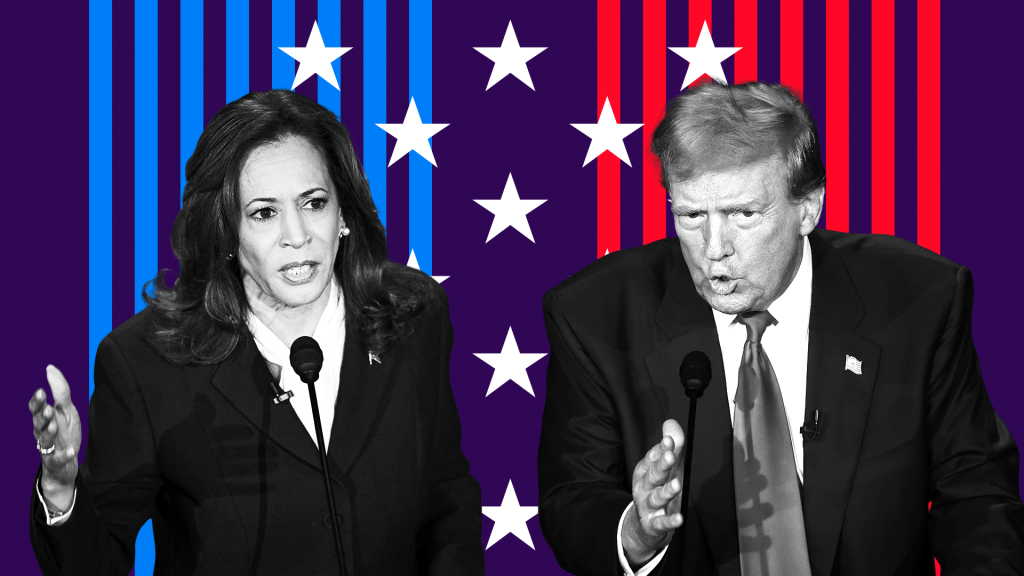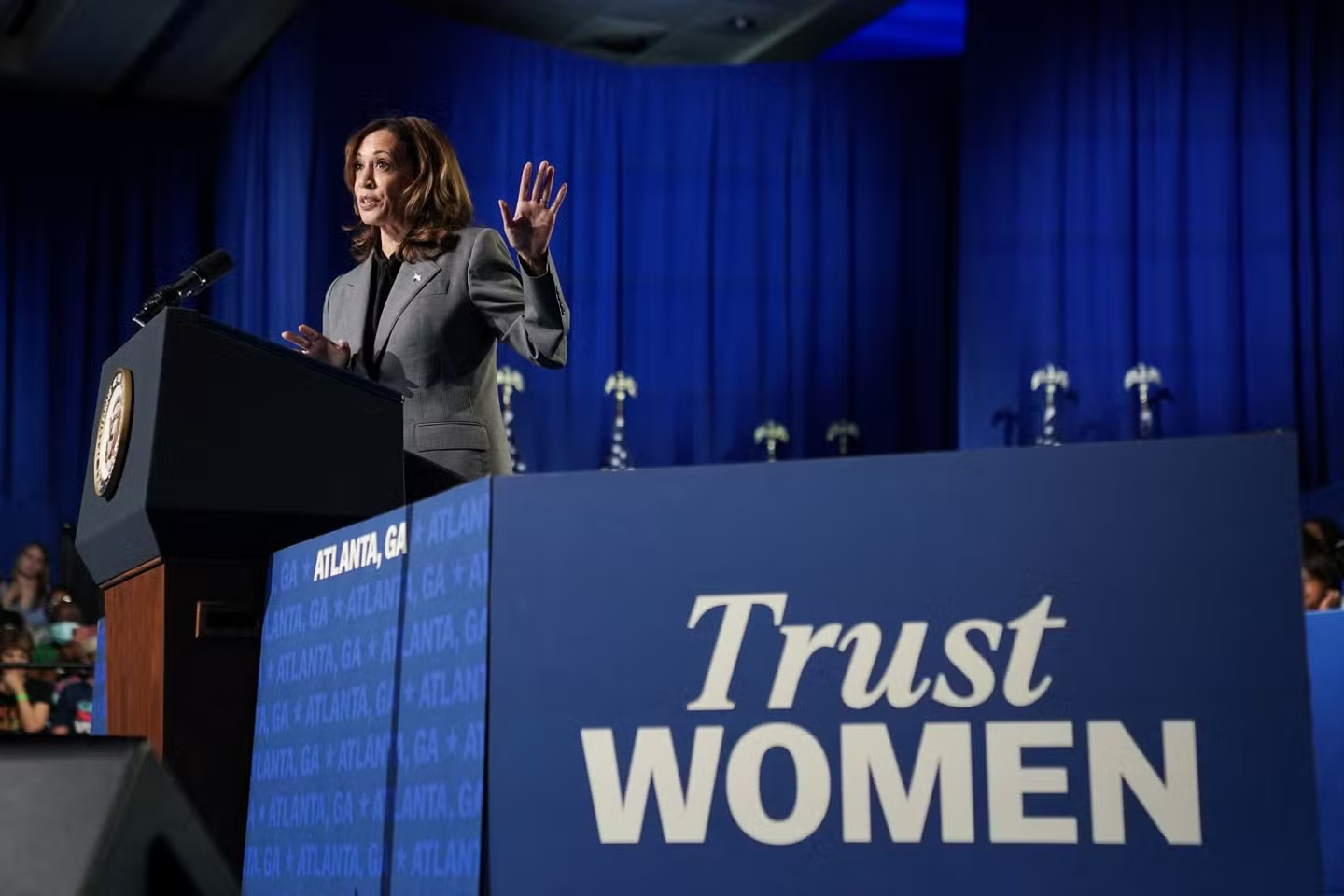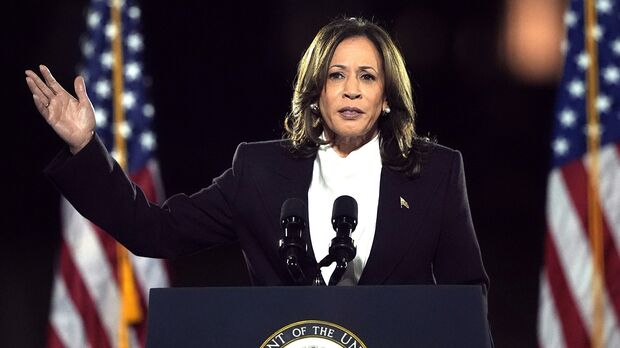Harris Warns of Trump’s Dangerous Ambitions During Massive Rally in Washington.
In her most massive rally to date, Democratic candidate Kamala Harris gathered more than 75,000 people in Washington on Tuesday evening, a critical event as she approaches the final week of a closely contested race against Donald Trump. Harris, delivering a rallying call for unity and the preservation of democratic principles, emphasized what she described as the potential risks of another Trump presidency, accusing him of being “unstable, obsessed with revenge, consumed with grievance, and out for unchecked power.” This event marks the crescendo of a campaign in which Harris has sought to differentiate herself as a stabilizing force and a champion of a more unified America.
The crowd, gathered near the White House, held symbolic weight, being in close proximity to the site where Trump previously addressed his supporters on January 6, 2021, the day of the Capitol riot. Harris reminded her supporters of that day, drawing a direct line between Trump’s past behavior and what she perceives as his current ambitions. “We know who Donald Trump is,” she said. “This is someone who sent an armed mob to the U.S. Capitol to try to overturn his loss in the 2020 presidential election.”

Harris’s team has characterized this rally as her “closing argument” ahead of the Nov. 5 election, a time for her to underscore her campaign themes: defending democratic values, moving past divisiveness, and promoting a vision of a country built on shared responsibility and mutual respect. In her words to the crowd, she painted the election as a pivotal moment for the nation’s future: “We have to stop pointing fingers and start locking arms,” she said, stressing that her vision for the country involves bridging divides rather than widening them.
The rally attendees were an amalgamation of demographics that underscore Harris’s broad appeal. There were older Americans alongside college students, people from across the country, and a notable presence of women who had traveled in groups with friends to show their support. Saul Schwartz, a former federal worker from Alexandria, Virginia, encapsulated the stakes he sees in this election, saying, “It’s important that we do not go back to the horrible past policies under President Trump.”
For Danielle Hoffmann, who traveled from Staten Island, New York, Harris represents an aspirational figure in a male-dominated field: “She’s everything that I always wanted in a president. She is joyous, real, she is powerful. And she is a woman.” Hoffmann, however, noted the mixed support in her family; her husband, she admitted, remains a Trump supporter.
This mix of support is telling in a contest as tight as this one, and recent polls reflect a continued trend toward a narrowing race. According to a Reuters/Ipsos poll conducted on Tuesday, Harris’s lead over Trump has shrunk to a mere 44% to 43% among registered voters.
Harris had maintained a steady lead since she entered the race in July, but her advantage began to slip in late September, possibly reflecting a tightening race as Election Day draws closer. Nonetheless, her team remains focused on reaching voters who are still weighing their choices and making final decisions in the critical battleground states.

Meanwhile, Trump’s campaign has sought to emphasize his strengths on economic issues and voter outreach, despite facing backlash for remarks made by one of his supporters. In Florida earlier on Tuesday, Trump addressed a crowd and attempted to move past offensive remarks made by comedian Tony Hinchcliffe at a New York rally, which included derogatory comments about Puerto Ricans, Black Americans, Jewish people, and other minority groups.
Trump’s campaign initially distanced itself from Hinchcliffe’s comments, saying they did not reflect Trump’s views. On Tuesday, Trump responded to the criticism by characterizing the New York event as an “absolute lovefest” and praised his supporters, claiming that he was honored to be part of such a gathering.
President Joe Biden was quick to denounce the tone of Trump’s recent rally, calling the rhetoric “unconscionable and un-American.” In a public statement and social media post, Biden stated, “The only garbage I see floating out there is his supporter’s – his – his demonization of Latinos is unconscionable and it’s un-American.” Biden reiterated his point later, emphasizing that divisive and hateful language runs counter to American values.
Trump’s campaign, however, has shrugged off the controversy, with allies arguing that Americans are more concerned about economic and national security issues than controversial comments made by individuals at rallies.
With both candidates eyeing critical battleground states, Trump made a campaign stop in Pennsylvania on Tuesday, a state with a large Puerto Rican population, only days after Hinchcliffe’s controversial remarks. Pennsylvania holds one of the highest numbers of electoral votes among battleground states, and both Harris and Trump are striving to reach Hispanic voters there. According to the U.S. Census Bureau, Puerto Ricans represent the largest Hispanic group in Pennsylvania, underscoring the stakes for Trump’s outreach in the state.

At his rally, Trump addressed the crowd, posing a direct question that has been central to his campaign strategy: “Are you better off now than you were four years ago?” He continued with a message of optimism for all Americans, saying he came “with a message of hope.” This theme of reassurance is one that Trump’s campaign has increasingly leaned into in the final days of the race, framing his leadership as a return to stability and prosperity.
In contrast, Harris’s rhetoric has centered on the need for democratic accountability and what she describes as a course correction from Trump’s approach to governance. The stark difference in these themes reflects the overall divergence between the two candidates’ policies. Harris has positioned herself as a defender of NATO, an advocate for supporting Ukraine, and a proponent of a unified approach to foreign relations, all points on which Trump has taken opposing stances.
Additionally, the two are starkly opposed on issues like reproductive rights, with Harris supporting abortion rights and Trump aligning with pro-life positions. Their economic policies also reflect differing philosophies: Trump has promised to impose significant tariffs, targeting the European Union, which he called “brutal.” Speaking in Pennsylvania, he warned that foreign entities benefiting from access to the American market would “have to pay a big price.”
As the campaigns enter the final days, both Harris and Trump are making a concerted effort to reach as many voters as possible, especially those in key states. Trump’s Pennsylvania stop underscores his commitment to flipping this battleground, while Harris’s Washington rally reflects her effort to galvanize her base and inspire higher voter turnout. More than 53 million Americans have already voted, according to Election Hub at the University of Florida, and this number continues to rise as Election Day approaches. Both candidates are also making the rounds in media interviews, town halls, and other campaign events aimed at drawing final support from undecided voters.
Harris has consistently framed her campaign as a fight to restore integrity to American politics, seeking to unite a deeply divided country. In contrast, Trump has focused on a message of economic recovery and strength, positioning himself as the leader to return the country to prosperity. As the candidates make their closing pitches, the outcome remains highly uncertain, with both campaigns locked in a contest that could come down to just a few key states.
In a highly polarized environment, Harris and Trump’s differing visions for America highlight not just policy contrasts but fundamentally different views of leadership, democracy, and the role of government in American life. The upcoming election promises to be one of the most consequential in recent memory, setting the direction of the nation for years to come.




